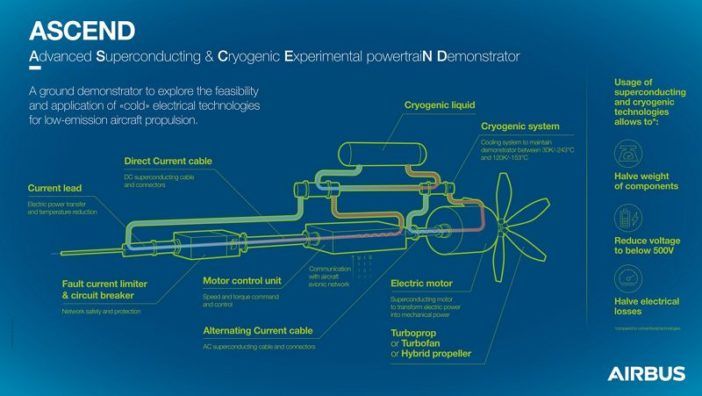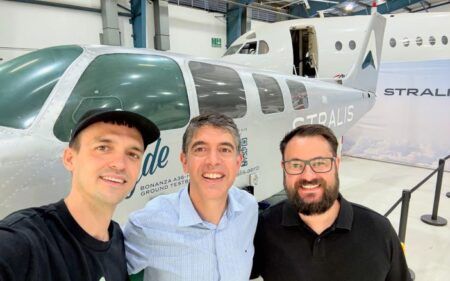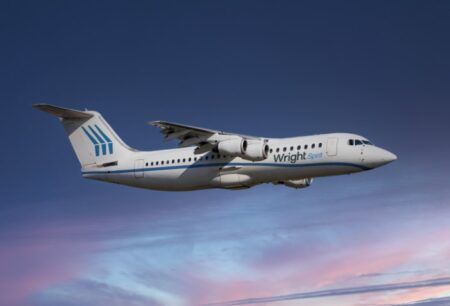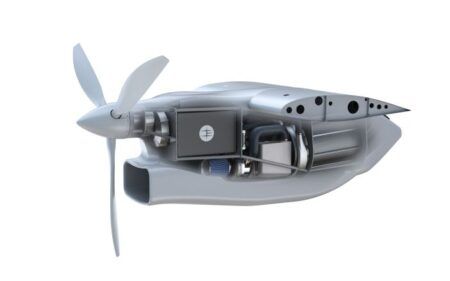Researchers at Airbus are to develop cryogenic systems and use superconducting materials to boost the efficiency of electrical propulsions systems for aircraft as part of a major R&D program.
The project, which is called the “Advanced Superconducting and Cryogenic Experimental powertraiN Demonstrator” (ASCEND) will investigate the use of superconducting materials and cryogenic temperatures on the performance of an aircraft’s electrical propulsion system.
Engineers at Airbus’ E-Aircraft System House in Munich, Germany are to design and build a demonstrator over the next three years for testing and evaluating technologies that could be used in turboprop, turbofan and hybrid propeller engines.
The demonstrator will use superconducting materials to lower electrical resistance so that electrical current can supply power without energy loss. Liquid hydrogen at cryogenic temperatures of -253˚C (-423.4˚F) will be used to cool the electrical systems to significantly increase the performance of the overall electric propulsion system.
Engineers on ASCEND expect the results of the project to show that component weight and electrical losses can be at least halved, for the size and complexity of electrical systems installation to be reduced and for a reduction in voltage to below 500V to be achieved, compared to current systems.
The ASCEND demonstrator will feature a 500kW powertrain consisting of a superconducting distribution system, including cables and protection item, a cryogenically cooled motor control unit, a superconducting motor and the cryogenic cooling system.

The project will assess electric architectures from several hundred kilowatts to multi-megawatt applications with and without liquid hydrogen on board.
Ludovic Ybanez, head of the ASCEND demonstrator project said, “With the ASCEND demonstrator, we’ll adapt ground-based cryogenic and superconducting technologies to a fully electric powertrain to confirm their potential at aircraft level. Integrating these components will not only be a world first, but also an essential step towards future full-scale tests and flying demonstrators.”
The European aircraft manufacturer plans to use the ASCEND program to explore the feasibility of using these technologies to optimize propulsion architecture for its next generation of low-emission and zero-emission aircraft.
ASCEND is also expected to support performance improvements on existing and future propulsion systems across the entire Airbus portfolio, including helicopters, eVTOLs and regional and single-aisle aircraft.
The demonstrator is being developed within Airbus UpNext, an Airbus subsidiary created to give future technologies to fast track development of demonstrators.




